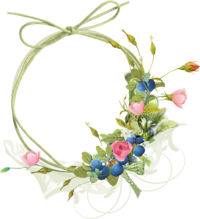Bright Eyes
Just like Shooting Star from Disney's Hercules, he's done a marvelous job on this one. His sparkling, inquisitive voice flows as a river of life gently, which submerged with beautiful daylight that is fading. | |||||||||||||||||||||||||||||||||
▼The part in which Bunny Steo speaks... ▼For a theme song at the end |
Here in this episode - Escape from Efrafa (1999), you can
enjoy Blackvar voiced by Steo (This bunny was made
to take after him. I think, he sort of does! He shows up in
another two episodes: Challenge to Efrafa, The Shadow of Efrafa)
as well as the theme song sung by him. Couldn't ask for more:)
|
|
Back Again No Matter What: Live 2008 | |
|
Yes, he can fly! (Just as he sings in his song, I can dream!) | |
|
Nice atmosphere here. | |
To see, or not to see, that is the question.
 |
I'd never heard of Watership Down so I searched online. Since the one I found first was the 1978 film version, I thought the plot was pretty nightmarish. I know we hadn't really studied the possible effect of constant exposure to violence on underage people back then, but it appears to me they've tried too hard to show people that your beef is not hanging on trees like fruits waiting to be picked up for free.
According to my understanding, it's not like you have to watch bleedings in order to feel life and appreciate it especially when they are generated by hate and terror.
Then I found out that Steo took part in the TV series version which is nicely edited so I was happy to post them here...whoof!
Anyway, its description of the darker side of life, characterized by fights for freedom and power,
mythology and ecology that are put forward to give depth to the story,
reminded me of an anime film, Princess Mononoke by Ghibli ( world famous Japanese anime brand ) 1997.
It may still be a so-called fantasy film, but it actually is based on the historical study on how people interacted with supernatural beings by creating and defining asylum, a holy space, at that time (around the 16th century) through different occupations and communities.
Beautiful Nature illustrated in the film is not meant to be a mere background or scene that serves the characters, but an active agent that accommodates human lives, with its diversity and by being a representation of the Japanese spirituality from ancient times.
The Blast furnaces (Tatara) autonomous community is also based on the history,
yet this idea is quite modern, coming from socialist experiments in human history,
namely the one that occurred in China.
Ghibli animation overall (not just Mononoke) may be for younger people and can be
treated as pure entertainment, but they sure do represent the director's view of human
society and how he understands and appreciates the world, which can appeal to more mature fans.
There is nothing too sensational about the violence in the movie, but it's still in there,
to show how life can be unreasonably brutal and cruel, causing disparities and unfulfillment
among people who are only meant to live. Nature also suffers, which has been a subject of
worship and exploitation, which stem from each group of people's own interpretation of its existence.
So, you can see that just like Watership Down, the story is based on realism, and is made of careful examination of life while providing fantasy elements at the same time.
You can read the director's interview here if you are intrested in glimpsing how the way people look at and iteracted with nature has changed over the history in Japan
The movie is known for its simple yet impactful tagline. It is, "(you must) Live".
I at first thought this was a snide remark about young ones who commit suicide.
Bullying and increasing suicide rate were the huge social problems at that time in Japan (regrettably, it still is).
Some are not sympathetic and they are willing to blame them for being weak, oversensitive
and pessimistic, apathetic and arrogant by being ignorant, hopelessly spoiled in this materialistic world.
I am not here to judge whether they are wrong or right, but it is only fair to say not many seem to be willing to admit they are responsible for making the society as it is today.
Blaming suicide for an evil act doesn't seem to be the purpose for this movie though,
which is apparent in the director's words. He claims he will never make a film
in which defining, targeting evil and terminating it save our world, saying
"No matter what our intentions are, we may not be able to solve all the problems in the world.
It is only natural to assume the conflicts may bring no happy ending between Nature and humans.
Rather, (by focusing on your own life), even amidst hatred and massive destruction,
one can find something to live for. The world still offers wonderful encounters and beautiful things."
People often choose to end their lives due to the unpleasant things they perceive and experience in life, but the director's main message seems to be that your will to live in adversity alone is what makes one beautiful, and one should deserve to know the beauty of life in each way.

I had a chance to attend the lecture by the artist who has voiced Moro (a devine wolf in the movie) recently. Raised in the red-light district, he was the victim of Nagasaki atomic bombing. I have lots of respect for him because even though he's seen so much of the ugliness and miseries of human lives which he does not hesitate to talk about, he's still the one to smile gently (he intentionally does that to make others comfortable) and speak about the importance of love and beauty as someone who never forgets to be thankful.
He told us that during the war, all kinds of art were taken away from people by the military, who denounced them as the things for weaklings (much like how Nietzsche attacked religion as the stuff for losers, I would say), demanding them to die for their nation. He said he strongly believes beautiful things you experience through art (although he would like to remind you that some popular art stuff is pretty destructive these days) save your soul. He's very faithful, too. Be it Buddhism or Christianity, he's taken them all, so as to help him have more reflective attitude toward life.
I'm very grateful that I was able to receive this truthful
message and I hope art, which can be found in your everyday life,
just a beautiful sky, for an example, will keep your soul awake and alive ,too.
Finally, on top of that tagline, there is this popular theme song, just like Watership Down.
I've found an English version which is beautifully sung. I put my direct English translation of the Japanese lyrics
just for your reference.
|
|
はりつめた弓の ふるえる弦よ |
|---|---|
Orchestrated soundtrack. |
I may not be an activist struggling to "save" Nature but I love Nature. I truly do. I feel there's more than life there.
Maybe I can talk about it here someday.
For those who only seek and need "answers", this Ghibli film may leave them unhappy. They want a happy ending by
finding and judging who is/was right or wrong. This movie doen't explain much and sees you off at a vast field of uncertainty.
The song, Bright Eyes, sounds like a simple, innocent questioning of life and death to me.
Yet do you get the answer by listening to or singing this song? Maybee not.
I feel Princess Mononoke film and this song, Bright Eyes at least, share one common theme;
"Not afraid of darkness, but find light in there by constant questioning and trying, that is, to live."
Darkness can be indeed where life is born, not the place for it to be destroyed. Imagine how many lives have been taken for a cause in the light of day after all?
Maybe it's time to redefine darkness and experience it in a totally different way.
"There's a high wind in the trees
A cold sound in the air
And nobody ever knows
When you go
And where do you start?
Oh, into the dark"
Love, Nolla
Leave a Comment
This page's URL: ""
Photo by
Thomas Despeyroux on
Unsplash
silver PNG Designed By 七七的7 from Pngtree
